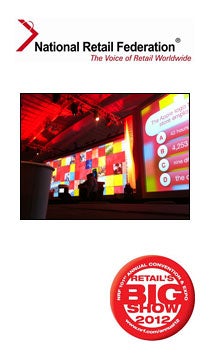 If you were a traditional retailer looking to ignite an ages-old marketing strategy, Rent The Runway CEO Jennifer Hyman and One Kings Lane CEO Doug Mack would probably be a good place to start. On Sunday, with the able moderation of Castanea Partners Jeffrey Rayport, Hyman and Mack discussed the shifting, tectonic plates of retail and how each of their company’s is bringing new ideas to an ancient business.
If you were a traditional retailer looking to ignite an ages-old marketing strategy, Rent The Runway CEO Jennifer Hyman and One Kings Lane CEO Doug Mack would probably be a good place to start. On Sunday, with the able moderation of Castanea Partners Jeffrey Rayport, Hyman and Mack discussed the shifting, tectonic plates of retail and how each of their company’s is bringing new ideas to an ancient business.
Both companies are currently online-only, and yet, a takeaway from the panel discussion was that “offline” has its role in their businesses.
Online-only retail business models can be symbiotic with offline because – in part – they enhance the offline brands that consumers love. Rent The Runway (RTR) pulses with the designers, couture and fashion that hovers around the latest celebrity wannabees. Likewise, at One Kings Lane, the Home Décor sector is for consumers looking to update or start over with desirable home furnishings.
For the hearty National Retail Federation conference attendees who stayed until the end of the first day’s final panel, it’s apparent that at least some of those considering retail and its merchandising need to move toward what Mack saw as a curation model. Scarcity can balance with satisfying consumers needs, and the no-holds barred, we’ve-got-it-all selection model isn’t necessarily optimal. You don’t need everything for sale in your store – brand counts. And, potentially fat margins could follow.
“iTunes store” thinking this is not. And the manipulation of time is an important tactic here, too. RTR is event-driven. One Kings Lane is even more real-time dependent as 6 to 8 “boutiques” open and close sales every day. Hyman and Mack agreed that there is a “gamification” to the retail magic each is looking to create, too.
For RTR’s Hyman, the business of renting fashionable dresses and accessories is an opportunity to give women the chance to afford designer wear that they’d normally never buy since a) it costs so much and b) they may only wear it once.
Also, Hyman noted the negative effects of transparency and Facebook on past dress buying behaviors that ironically bode well for her business. For some people – you know who you are – getting caught wearing the same thing twice for separate special occasions is fashion sacrilege. Your friends always check out your photos on Facebook, after all. You don’t want to be a fashion retread!
RTR aims to create “Cinderella moments” said Hyman, who added that it’s not so much about the moment of wearing the dress that counts. It’s about the compliments and the sharing that occurs before and after the special event. Meanwhile, in the slipstream of sharing is the data, which only piles up on for the retailer. Site members provide even more rich data after a happy experience.
A savvy, digital marketer might ask, “Is this just another ad network?” A dress ad network, that is. RTR could be cannibalizing sales of direct purchases of high end dresses, no? “Wrong,” says Hyman. RTR members are “building a memory around an event with a designer brand which marries ‘Dream big’ and Cinderella.” In fact, it teaches the member about brands they want to be associated with.
Hyman and One Kings Lane’s Mack made clear that tech, data and analytics are critical elements in the success of their companies and which begins with a registration process. And yet, guiding and inspiring consumers’ emotions was central to their marketing’s success:
- RTR’s Hyman emphasized that emotional connection was “everything” and when consumers were surveyed, price wasn’t even a top 10 concern. “Anticipation and memory is as important as the time she’s renting the dress,” said Hyman.
- Mack said that selling out wasn’t necessarily the best for consumers as One Kings Lane flash sales initially depleted its inventory in the first 15 minutes of a sale. To loyal customers, this was a difficult pill to swallow. The company found itself constantly reviewing whether its site was showing too much or too little velocity. The emotional experience needs to be positive and fun, not negative.
For all the talk about the science of online retailing these days, Doug Mack unearthed a favorite buzz phrase of former Yahoo! CEO Carol Bartz saying that it was a “combination of art and science” that was necessary in order to put a retailer into a position of success. Certainly, Hyman and Mack believed it. Whether some of the more traditionally-minded retailers in audience believed it is another question.
By John Ebbert











